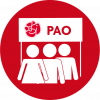Civil Society Organisations Academy

Civil society organisations—making democracy work
Civil society organisations (CSOs) are crucial for a democracy to function. They monitor government institutions and policies, create awareness of individuals' rights, organise and mobilise people and strengthen their capacity to assert their rights. They also offer community services themselves when states do not.What civil society organisations do
A civil society organisation (CSO) or non-governmental organisation (NGO) is a non-profit, voluntary citizens’ group which is organised on a local, national or international level.
Task-oriented and driven by people with a common interest, civil society organisations perform a variety of services and humanitarian functions. They bring citizens’ concerns to governments, monitor policies, and encourage political participation. CSOs provide analysis and expertise, serve as early warning mechanisms, and help monitor and implement international agreements.
The Palme Center’s cooperation with CSOs
The Palme Center mainly works with CSOs within the international labour movement and/or organisations that are active in the areas of societal change, union rights, democracy and human rights.
Our aim is to:
- Strengthen CSOs institutional and organisational capacity
- Foster alliance-building between civil society, political parties and the trade union movement
- Support civil society organisations in developing policy and reform proposals for progressive and sustainable development.
Toolbox
Forms for application and reporting
All templates and documents that may be needed in the collaboration can be found here – from agreements to budget and accounting forms.
Method material
Tools and materials that can be helpful in your work. Use them to deal with themes such as gender equality, climate, anti-corruption and risk management.
Recorded trainings
You will find upcoming workshops under News for all OPC partners. Here you can take part of recordings of past trainings on topics such as climate or gender integration.
Project management
From start to finish—here's how to run a project with the support of the Palme Center:1. Planning and application
How do you start a new collaborative project together with the Palme Center and a Swedish partner organisation? Here we have gathered information about what is good to think about during the planning and application phase.
2. Organisational development
It’s not just about carrying out a certain project: strengthening your organisation itself is a key goal. Read more about how to improve your organisation’s capacity to reach your goals.
3. Follow-up plan
Are you on the right track? This is how you follow up the results from the activities you carry out, document the results and report the costs.
4. Finances in order
Learn more about the specific rules, regulations and requirements that apply to project support and core/organisation support financed by the Olof Palme International Center.
5. The annual report
The annual report is where you document the results you have achieved, the changes you have made and the knowledge you have gained during the year.
Perspectives that need to be part of all work
In order for our operations to contribute to positive and progressive development, these perspectives must be integrated into all projects:Gender equality
All projects run with funding from the Palme Center must promote gender equality and non-discrimination.
Environment and climate
The climate and environmental crisis is humanity’s greatest challenge. All operations need to contribute to slowing it down, or to increasing society’s ability to cope with the consequences.
Anti-corruption
Corruption is an obstacle to democracy and human rights. That is why it’s important to have zero tolerance for corruption. To prevent and deter corruption is to contribute to democratic development.
Conflict sensitivity
A conflict that is not handled peacefully and constructively can grow and become destructive. To minimize the risk of negative effects of our change work, it is important to analyze the context from a conflict sensitivity perspective.








 Palme Resource Center
Palme Resource Center




